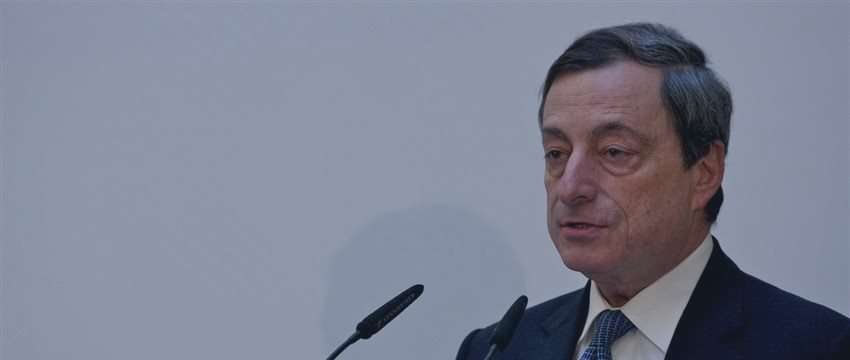
Draghi may announce QE expansion as China risks menace recovery - Analysis
Softer commodity prices, hampering trade and a turmoil in global equities make it
likely the European Central Bank president Mario Draghi will lower the bank’s quarterly inflation forecasts at his press conference later in the day.
Although analysts do not expect further action, they’ll be tuned in for any hint indicating the ECB’s 1.1 trillion-euro quantitative-easing program could be extended.
At this time, measures appear more likely than at the Governing Council’s last policy meeting in July, with
market-based measures now pointing to medium-term inflation falling even
further below the goal of just under two percent.
There will be no action, just words, says
Marchel Alexandrovich, senior European economist at Jefferies
International Ltd. in London.
“The ECB’s stance is, assuming that China doesn’t blow up, that inflation will come back over the next couple of years. He’ll talk about all options being on the table.”
The central will announce its interest-rate decision at 1:45 p.m. in Frankfurt,
and Draghi will hold a press conference 45 minutes later to explain the
decision and any other policy deliberations. None of the 47 economists
in a Bloomberg survey forecast a shift in the benchmark rate, currently
at 0.05 percent.
The deposit and marginal lending rates are expected to be unchanged at minus 0.2 percent and 0.3 percent, respectively.
In his statement, Draghi will outline the September edition of the ECB’s quarterly staff predictions for economic growth and inflation. In June, forecasters said 2015 inflation should come in at 0.3 percent, rising to 1.5 percent in 2016 and 1.8 percent in 2017.
Those calculations assumed an average Brent price this year of $63.80 a barrel, rising to $71 a barrel in 2016. Last month, oil fell to less than $43 a barrel, suggesting the ECB’s price-growth forecasts for 2015 and 2016 are unlikely to survive intact.
While market-based inflation expectations - as signaled by 5-year, 5-year forward contracts - jumped as high as 1.73 percent in August, they’re down from 1.86 percent in July. Peter Praet, the ECB’s chief economist, said on August 26 that global developments have “increased the downside risk of achieving the sustainable inflation path toward 2 percent.”
Only this may not be sufficient to justify amplifying QE.
The June forecasts for growth saw the euro area economy expanding by 1.5 percent this year, 1.9 percent next and 2 percent in 2017.
Similar to other major central banks, the ECB has been annoyed by the persistence of low inflation even as economic expansion returns. Officials have said they’re prepared to extend the duration of QE if is necessary, which would raise the total amount of cash pumped into the economy.
They could also expand the range of assets eligible for the purchase plan, which is currently limited to government or government-linked debt, asset-backed securities and covered bonds.
There is a cause for optimism that China’s downturn, its unexpected currency devaluation and the market rout won’t hit Europe’s growth outlook in a too painful way, according to Anatoli Annenkov, euro-area economist at Societe Generale SA in London. That said, ECB President may want to get ahead of markets and decide to ease the policy before Europe gets “stuck” with below-target inflation and weak growth, he said.


